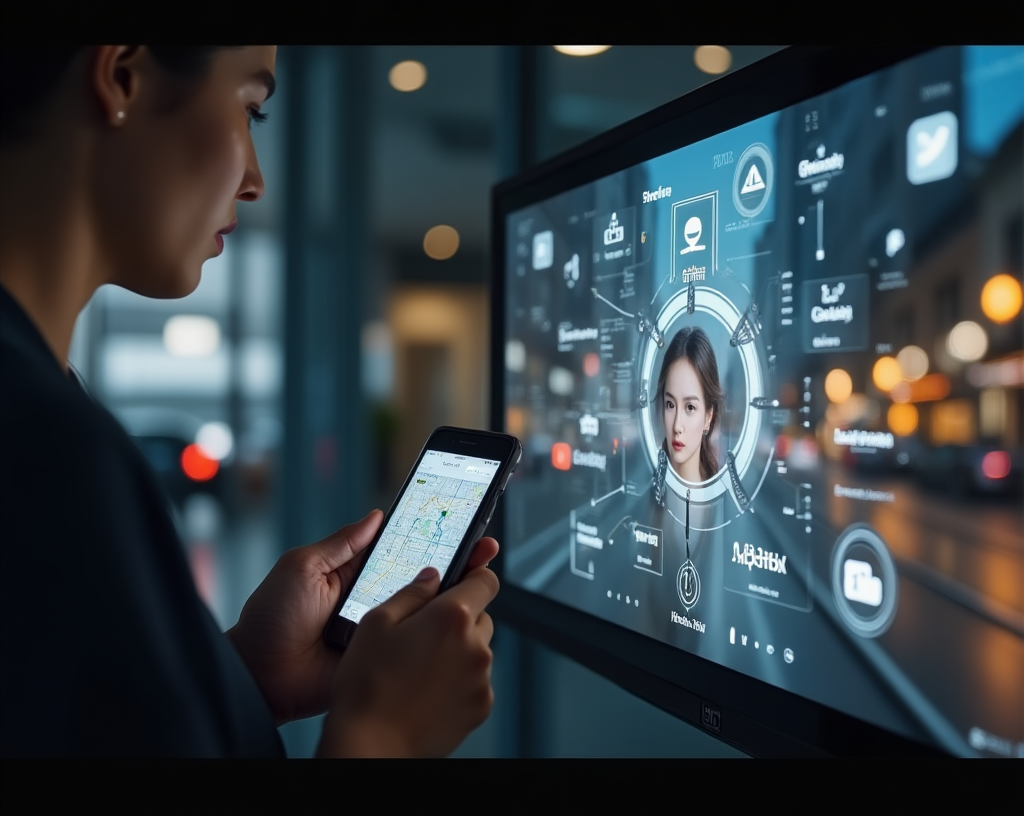Artificial Intelligence (AI) is no longer just a futuristic concept—it’s already here, working silently behind the scenes in our everyday lives. From smartphones and online shopping to healthcare and education, AI is helping us live smarter and more efficiently. Let’s take a look at how AI is changing the way we live.
AI in Smartphones
Our phones are one of the most common ways we interact with AI. Voice assistants like Siri, Alexa, and Google Assistant use AI to answer questions, set reminders, and complete tasks. Even predictive text, facial recognition, and app suggestions are powered by AI, making your phone more personalized and useful.
Personalized Recommendations
Ever wonder how Netflix knows exactly what show you’ll like next? Or how Spotify seems to build the perfect playlist for your mood? That’s AI at work. These platforms use your viewing or listening history to suggest content you’re more likely to enjoy. This personalized experience is all thanks to machine learning algorithms that understand your habits.
Smarter Shopping
AI has transformed the way we shop online. Platforms like Amazon use AI to recommend products based on your browsing and purchase history. You’ll also see chatbots helping you find products, answer your questions, and solve problems—24/7, without the need for human customer support.
AI in Homes
Smart home devices are becoming more common, and they rely heavily on AI. Smart thermostats learn your temperature preferences and adjust automatically. AI-powered lights can turn on or off based on your presence, and smart security systems recognize faces and detect unusual activities. These devices not only offer convenience but also help save energy and improve home security.
AI in Transportation
When you use Google Maps or a ride-sharing app like Uber, AI is behind the scenes calculating the best routes, estimating arrival times, and matching you with drivers. Some cars even have AI features like lane detection, collision warnings, and auto-parking, making driving safer and easier.
AI in Healthcare
AI is helping doctors diagnose diseases faster and more accurately. It can analyze X-rays, MRI scans, and other medical data to find problems that the human eye might miss. Virtual assistants are also being used to remind patients to take their medicine or attend appointments. AI is making healthcare more efficient and accessible.
AI in Finance
Banks and financial apps use AI to detect unusual transactions and prevent fraud. Some even provide money-saving tips or offer investment advice through AI-based tools. Robo-advisors help users manage their portfolios with minimal effort, making investing easier for beginners.
AI in Education
AI-powered learning platforms adjust lessons to fit a student’s learning pace. Apps like Duolingo use AI to make language learning more effective, while tools for teachers help track student performance and offer insights on how to improve their progress. AI is making education more personalized and accessible.
Challenges and Considerations
While AI has many benefits, it also raises concerns. Privacy issues, job losses due to automation, and ethical questions around AI decision-making are real challenges. As AI continues to grow, it’s important to use it responsibly and think about its long-term impact on society.
Conclusion
Artificial Intelligence is already a part of our daily routines, from the way we shop and learn to how we drive and receive healthcare. It’s making life easier, more efficient, and often more fun. As AI continues to evolve, we can expect even greater changes—making it more important than ever to understand how it works and how it shapes our world.
